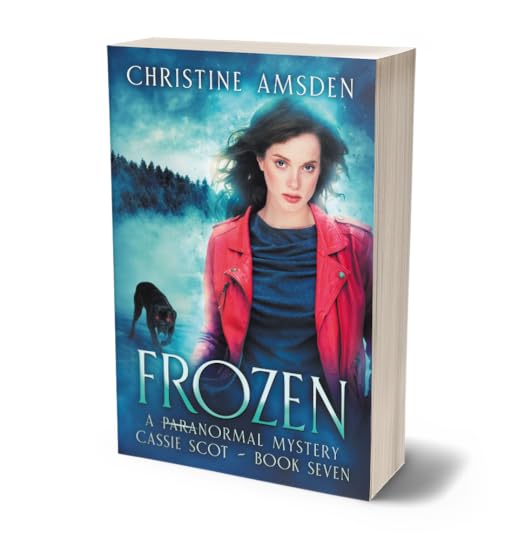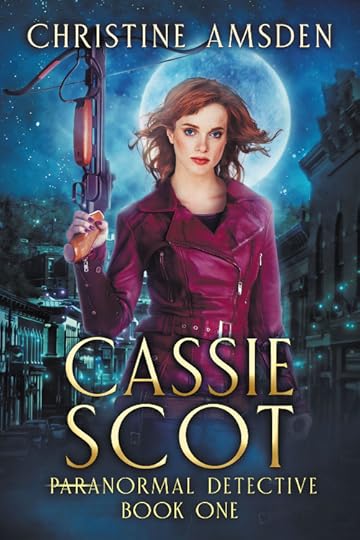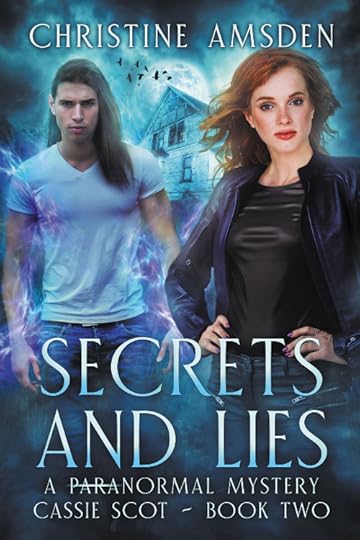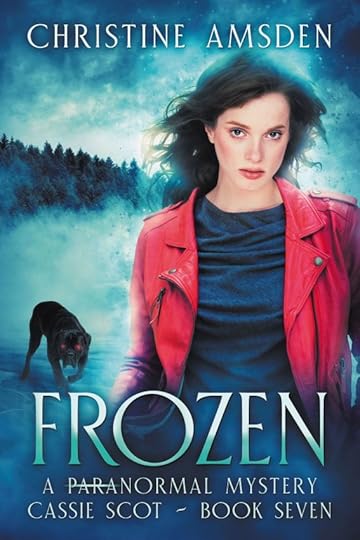Christine Amsden's Blog: Christine Amsden Author Blog, page 2
October 13, 2018
Honest Feedback
One of the most important skills that a writer can learn is how to provide effective feedback. If you want your writing to climb out of interns’ slush piles and into the hands of editors, or even if your stories are ready to become great rather than merely acceptable, you will need to show them to people who can tell you what they think. They will probably not do this unless you also tell them what you think of their stories. But learning to provide effective feedback goes beyond a cold business relationship. Part of the job of a writer is to evoke the desired emotional responses from readers. If you cannot help a fellow writer feel hopeful about his own abilities and thankful for your supportive suggestions, then how can you make a reader feel hope, fear, love, or anger?
Do not despair. This does not mean that you have to be an exceptional writer in order to be an exceptional critiquer. Indeed, anyone who can read and form an opinion can learn to provide constructive criticism. You may even find that in so doing, your own writing moves up to the next level.
Honesty vs. Harshness
I have often heard writers tell me that when they send a story out for feedback, they can take it; they want harsh feedback. Likewise, they suggest that all writers should learn to take harsh criticism and accept the remarks in the spirit in which they were given. I agree that writers need to learn to accept harsh criticism, because it will come, but why should it come from you?
Learning to accept harsh criticism is a challenge. No matter how good a writer is at picking positive suggestions out of combative phrasing, the process is painful and time consuming. It is painful because “the spirit in which it was given” is not obvious through the stinging remarks. We have to intellectualize these comments, telling ourselves that the reader only meant to help when every word they write tells the primitive emotional parts of our brain that they think our work is terrible and we should give up writing. It is time consuming because sometimes the only way to find the useful suggestions in these combative remarks is to walk away for a time.
There is a difference, and a significant one, between being honest and being harsh. Feedback is useless if it is not entirely honest, but it can be honest without being harsh or rude. The difference is all in the phrasing. When you write a comment, are you suggesting or demanding? Are you telling the writer what to do or explaining how the story made you feel?
The best way to illustrate is with examples.
“It was obvious that the evil sorcerer was going to turn out to be Nathan’s father. Ever since Star Wars did it, that is so cliché.”
The biggest problem with this wording is that opinions are stated as facts. One person cannot speak to whether or not everyone will have seen the ending coming, but this phrasing comes across that way. Perhaps anyone with two brain cells to rub together would have seen this ending coming, but if that is the case then multiple critiques will reflect this truth. Another problem is that it does not leave the author with any hope of fixing the problem. It comes across as an attack, rather than a suggestion, partly because (whether intended or not) it suggests that the entire story should be buried.
“It says on page 26 of ‘The Writer’s Handbook’ that you should always, ‘Show, not tell.’”
The first problem with this is that there are no rules when it comes to writing, only suggestions. Any rule of writing can be broken with good cause so long as the writer understands the consequences and is willing to accept them. In fact, I like to say that rather than rules or guidelines, there are causes and effects connected with every choice you make.
The second problem with this phrasing is that citing a source goes one step further towards making it sound as if you are stating a fact rather than an opinion. Now, not only are you demanding that they make a change, but you are quoting an authority to back you up. If you have a book on writing to recommend, there is no reason you cannot do so, but it is better to use your own opinions when giving specific feedback.
“I got the impression that you have never studied physics before, because if you had you would know that all actions have equal but opposite reactions.”
This particular comment breaks the cardinal rule of providing feedback: Critique the story, not the author. Never make assumptions about the author, his knowledge, or his motives. There is no more combative statement than to start making personal assumptions about the writer of the piece. I cannot blame a writer for taking a statement like this to be a personal attack.
“Why don’t you try writing your opening paragraph this way?…”
Actually, this is the best comment I’ve shown you so far in that it is at least suggestive rather than openly hostile. The trouble is the part that comes after the ellipsis. This is not your story, it is the author’s, and explicitly showing him or her how to rewrite a section is usually a bad idea. There are two problems with doing this. First of all, if they use your rewrite, then the sections you wrote are not going to be in the same voice as the sections they wrote. Each writer needs to find his or her own voice. The other problem is an error of teaching. If you were showing a seven-year-old how to multiply, would you do this by always giving them the answer? Sometimes, you would, but only when they keep getting the same problem wrong. An example in writing might be constant use of passive voice – this may not be a bad time to choose one sentence to rephrase in order to show the writer how it is done.
So far, I’ve spent a lot of time showing you how not to give feedback. So how should you do it? Through suggestive phrasing and by choosing words that make it clear that this is only your opinion. Try using phrases such as:
Maybe you could try…
I didn’t really care for…
I find this passage…
I wonder if…
I got the impression that…
I felt…
Perhaps you could…
Have you thought about….
You might consider…
Try to avoid:
Don’t…
Never…
You shouldn’t….
You can’t….
So, if you want to tell an author that you saw their ending coming a mile away, you might try this:
“I suspected that the evil sorcerer would be Nathan’s father when you wrote, ‘Nathan was an orphan. He had no idea who his parents were.’ I wonder if this twist really adds to the plot? I found the hero’s quest to be compelling enough by itself.”
Not only have I been honest in this feedback, but I have actually been more useful. I pointed out the exact moment when the ending came clear to me, which is concrete information that an author can use, whether he takes my advice to cut the entire subplot or not. I have also intertwined a compliment into the comment by suggesting that most of their storyline was compelling.
“Usually, when a car crashes into a wall at 60 miles per hour, the car is not drivable afterwards and the driver does not walk away unscathed. I found that I expected a magical explanation for this miraculous crash, and felt disappointed when I did not receive one.”
Here, rather than making personal attacks against the author for what he does or does not know about physics, I have pinpointed a specific part of the story that was not believable.
Honesty is the best policy when it comes to providing feedback. If you find that part of a story does not work for you, you owe it to the author to clue him or her into this fact, or you should not bother reading their draft in the first place. But if you take a few extra minutes to phrase your honest thoughts in a suggestive and supportive manner, then your observations and advice will more than likely go faster and further than you could have imagined.
Reading Wisely Rather than Critically
Have you ever read a piece of feedback that sounded to you as if the reader was looking for problems? Perhaps they list a lot of nitpicky errors that few people noticed, or perhaps they turned something that worked for most people into a problem through a strange turn of logic. The symptoms are difficult to put into words, since these people may even have used all the right words, but these critiques just leave you with the odd feeling that the person had read the story with an eye to criticize.
You could correctly point out that the author did ask you to look for problems, because they certainly did. But there are those who seem to have a critical eye that, if turned towards published literature, would keep them from enjoying anything they read.
Think about how you read a published work. Probably, you accept on faith that the writing is up to a certain standard and read it relatively unhindered. From time to time, however, you may come across things that throw you for a loop. These things usually fall into three questions that all readers ask themselves from time to time: Huh? Oh yeah? So what?
We say, “Huh?” when we do not understand what just happened. We say “Oh yeah?” when we do not believe what just happened. We say “So what?” when we do not care what just happened.
All readers ask these questions. The wise reader notices when he or she asks these questions and writes it down so he can mention it to the author. The critical reader goes a step beyond, scanning each page for errors in a probably well-intended attempt to catch anything that anyone might find wrong with the piece. The trouble is that you can only speak for yourself, and by making such a purposeful effort to find errors, you lose credibility with the author. When I see a piece of feedback that begins to ramble on as if the reader were searching for those errors, I begin to ask myself, “Is this something that a normal person would have problems with, or is it just Mr. Picky?”
Pointing out the Positive
Truly constructive criticism not only points out weaknesses, but also notes strengths. Assuming that our intention is to help writers learn to write even better, then it is at least as important to tell them what not to change as it is to tell them what to change. Also, suggesting positive elements of a story gives writers hope that they do have some promise, even while reading about the negative aspects of their writing.
Different people will give you different guidelines for making positive comments. I have heard a suggestion called the “cookie method,” in which every negative comment is sandwiched between two positive comments like an Oreo cookie. I have also heard people suggest that three is the magic number of compliments, and so the number of your complimenting should be three.
Going along with the tactful honesty approach that I have suggested all along, I believe that you should always compliment honestly. I do not believe in magic numbers or cookie approaches that tend to lead to false compliments. The trick is that while you should not go looking for problems, you should go looking for promise.
I have read stories by authors that seemingly had no positive elements at all. This usually happens when the problems in the story overshadow it into darkness. Sometimes there need only be one problem, but the problem is the size of the giant oak tree that has blocked all the sunlight and moisture and caused the plant life in its shade to wither and die. In these situations, you need to use your imagination to pretend that the problem is gone. In your mind, you need to uproot the oak tree and see what flora and fauna begin to blossom beneath.
Let’s say you have read a story that suffers from the problem of needlessly withholding information, which kept you frustrated or uninterested throughout. This is a common error for novices, who often believe that keeping this information from the reader creates suspense. Pretend you knew this information up-front. Was it well written? Did you find the main character compelling or likeable? Had the information been given up-front, would you have enjoyed the action, free of the false suspense they had tried to create? Is the writer adept at vivid description or lively dialogue?
I have seen almost no samples of writing that did not warrant at least one sincere, heartfelt compliment. Sometimes you do have to go looking for these compliments by digging through the trash to find the strengths, but they are almost always there. In the rare event that the best thing you can think of to say about a story honestly is, “I liked your main character’s name,” then I recommend not saying anything positive at all. That’s not to say that, among other compliments, if you really liked a character’s name you should not mention it, but by itself it is flimsy, superficial, and devastating. It would be better to come across as someone who simply does not provide positive feedback then to demonstrate, through feeble compliments, that there really was nothing good about the piece.
And of course, never lie. Do not make up compliments. Do not tell someone a story was well written if it was not. Do not tell them you enjoyed their overall story if you did not.
So try to look for those positive things to say. Try to give the writer hope, and definitely try to keep them from changing story elements that work. I think three compliments is a good number if it keeps you digging long enough to find several honestly good points about a story, but do not follow any guidelines that keep you from being honest.
Symptom, Diagnosis, Prescription
As you read a passage and begin to notice that the spot on the wall has just become more interesting than the story, you have noticed a symptom, but not the actual problem. At this point, it is most helpful to an author to let them know that you lost interest. It is also important, if you can, to let them know why you lost interest – that is, to make a diagnosis.
Maybe the story started in the wrong place; either too early so that the setup takes too long or too late so that you do not know what is happening. Maybe the main character is unsympathetic, keeping you from caring what happens to him or her.
The most effective feedback gives the author the symptom and the diagnosis. If you say, “I lost interest in the story when your hero killed the man in a bar fight,” then you are accurately explaining your feelings. If you follow up with, “I think it is because I cannot sympathize with a character who commits murder, even accidentally,” then you have really given the author something to work with.
What you have to be careful of, however, is adding your own personal prescription. “I think you should cut this scene,” will not help the author in the slightest. That is an obvious possible solution to the problem, but what if it does not match the author’s vision for the story? As critiquers, our job is not to tell the author how to write his story, only to tell him what did not work for us and why.
Prescription is not the ultimate evil, but it does have its problems. The biggest problem I see with prescription is its use to the exclusion of citing symptom and diagnosis. “Cut this…” is a common phrase I have seen in feedback of my own work, with no explanation as to what prompted them to mark the passage. Assuming that I am correct in suggesting that someone cut a passage or word, simply telling the author to do so is like doing a child’s homework for him. They will get the answer right, but only this time, always assuming that they trust you well enough to make the change at all.
I do not believe that prescriptions should be used, but at least if they are used in conjunction with symptoms and diagnosis, then the author can understand where you are coming from and make up his or her own mind. If you insist upon making a specific suggestion for change, therefore, always remember to phrase it suggestively and place it in a context for understanding, describing how you felt when you read the story and why you think you felt that way.
Technicalities
There are two basic ways of providing feedback in a technical sense: in-line and letter format. An in-line critique is often more thorough, including grammar and spelling checks, and extensive notes at the exact point at which a problem is found. A letter format is usually more of a summary, describing the overall effect of the piece and providing a few specific suggestions.
There is no right or wrong way to do this; I try to abide by the wishes of the author. I also find that the more mistakes I see, especially when the mistakes are repetitive, the more I prefer to summarize these in a letter rather than frightening the author with red marks all over the place. This is a personal preference, however, and is neither right nor wrong.
One good piece of advice is that giving comments in ALL CAPS CAN COME ACROSS AS SHOUTING. It is also harder on the eyes. If you use in-line comments, try setting them off with asterisks (***comment***), or pound signs (###comment###), or a similar distinguishing mark. Microsoft Word also has an option called “track changes” that sets off any changes, including comments, in a different color (usually red or blue). This is my personal favorite, because it stands out and is easy to find and read. Some also like Microsoft Word’s comment cards, which put your thoughts in the margin in little blur or red memos.
Concluding Thoughts
Providing the most effective feedback is a skill, no doubt about that, but a skill that anyone can learn. Always remember that if you can read and form opinions, then you are worthy and capable of providing feedback. There is nothing special about a published writer that gives him or her more authority than you have when it comes to reading and having an opinion. You are both single readers in the prospective audience, and as in free elections, you each get one equally weighted vote.
If you are a writer, then I am afraid you will have to learn how to handle harsh criticism, because it will come. It will come in the guise of honesty, but I hope you see now that honesty can be supportive and polite, and I hope those harsh critiques will not come from you.
May 9, 2018
The Rain Season 1 Review
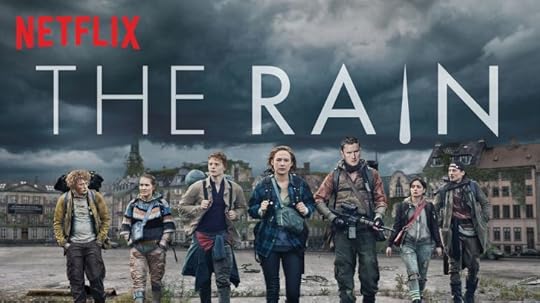
I love a good post-apocalypse. I’m not sure if I’ve ever seen one, but I am sure that if I ever did, I would love it! In the meantime, I am hopelessly drawn to this genre. 
May 2, 2018
A Plea for Help
I am not sure if I had to pick a favorite Cassie Scot book if I could but if I did I think Frozen just may come out on top. But I don’t know as I have loved them all and would recommend all seven books to all fans of magic and the paranormal or not so
ParaNormal. — The Avid Reader
Reviews are starting to come in for Frozen (Cassie Scot Book Seven) and I am thrilled by the response!
This book was a labor of love. I know, in my head, that Cassie Scot is not the series I should be working on right now. It’s not the smart career move, for reasons I won’t bore you with. And I AM working on other projects. I’ve got a completed science fiction novel involving a mysterious and impossible pregnancy, and I have nearly finished a multiverse story that is, on a superficial level, an Anastasia retelling. But Cassie has always had more stories to tell, whether I wanted to listen to her or not.
Last fall, I took about three months to write Frozen. For those who know me, you get how phenomenally fast that was! And I’m making no apologies — I allowed myself to write this book under two conditions: First, that I write it quickly, with a minimum of fussing and rewriting. Second, that I published it with no expectation of success, mostly as a thank you to my fans.
At this point, I’ve honored the first condition and am struggling with the second. Of course, now that it’s out, I want it to do well!
Yet this story has come out of the darkness, so to speak. I struggled with burnout and depression for a long time after the release of Kaitlin’s Tale, which sold poorly compared to the rest of the books in the Cassie Scot series. The reviews were great, and it won the usual awards, but I couldn’t help wondering what I was doing wrong and what it was all for.
My new zen philosophy is simple on the surface, but challenging underneath. It starts with an affirmation that I repeat to myself every single day:
Remember that, first and foremost, writing is supposed to be fun.
Right now, a little bee inside my ear is suggesting that I’d have more fun if I sold more books. 
March 25, 2018
NEW Cassie Scot Cover Art
I’ve gone with new cover art for the first four books in the Cassie Scot Series … and here they are!!!
(These will be updated at Amazon, Barnes and Noble, Goodreads, Audible, etc. over the coming days.)
March 13, 2018
Stranger Things Season 2 Review
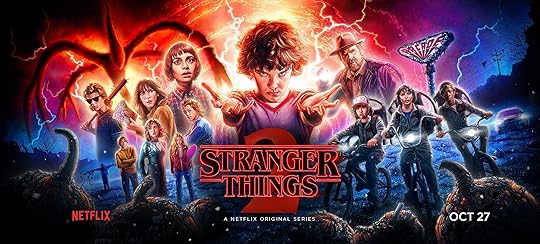
Warning: Minor spoilers ahead – nothing that will make or break the show, but small details hinting at end conditions are present. Paragraphs with these conditions are marked.
The first season of Stranger Things took America by storm, bringing us a combination of 1980s nostalgia and campy horror. I watched it with everyone else and enjoyed it, although I had some reservations that I confess, kept me from jumping right on top of season two until just this month (March).
My reservations were justified.
I haven’t heard as much enthusiasm regarding season two, although there is a vague sense that the show remains “good.” In a nutshell, that’s probably true insofar as it was good enough that I will watch season three, sooner or later. Much like with season two, it might not be the week or even the month it is released.
The good:
This show continues to marry 1980s nostalgia and campy horror in a fun if comfortably predictable way. The nine episodes in this season gradually built to an intense finale that had me wondering who was going to die. Wil and Dustin were my top two guesses. I won’t spoil it and say how that panned out.
Season two bridged the gap from season one, bringing out more character and fully redeeming Steve, who I finally decided deserved better than Nancy. The season also tied up the loose ends that season one left behind, including Barbara’s death, and in a very satisfying way. In fact, the way they handled Barb’s death and the surrounding cover up was possibly my favorite part of the season.
The not-so-good and the bad:
The season got off to a very slow start, with the first episode nearly putting me to sleep. Things didn’t get moving until about episode three. Part of the problem with the start and indeed, with the plotline of the entire season: too many main characters trying to steal the show.
As a character girl, I do appreciate depth of character. But as a realist, I know you can’t reasonably do this for over a dozen characters – at least not equally. Which was probably why I didn’t feel that most of the characters were particularly deep; they instead came across like stronger and stronger versions of the archetypes upon which they were based.
Watching this show made me feel like I was witnessing the result of contract negotiations with a dozen actors who all wanted at least X many lines in the new season. There was no focus, nothing bringing them together.
(Minor Spoiler) And bizarrely, they introduced Max (Maxine) and her jerk of a brother who turned out to be completely unnecessary extra baggage. I thought surely they were going somewhere with these two, earning the decision to add even more key cast members on top of an already large cast, but they didn’t. The plot did not require their presence in any way.
(Minor Spoiler) The new Byers love interest, Bob, did have a use – to die. Clearly, from episode one, we knew his role was to make us love him and then die. He did this fairly well, although I thought the writers got lazy with his ultimate demise. They had the opportunity to make it more meaningful and they let it slip through their fingers.
But I think by far my biggest complaint with this season was episode seven, which completely focused on Eleven (Jane) and sort of shone a spotlight on the trouble they had with keeping the actual main character reigned in while they dealt with the backup crew. Eleven IS the star of this show. She was what made the first season interesting, and her character transformations were key to season two. However, almost all of that transformation was squashed haphazardly into episode seven in a way that made it feel disconnected from the rest of the show. Episode seven probably should have covered most of the season.
Look, strange shadow monsters from other dimensions aren’t scary. The monster in the first season wasn’t scary either – the men in the lab were scary. The government running experiments on little girls is scary. In fact, the government is pretty universally scary! (Sidestepping political commentary here.)
This season began with a hint of more scary government stuff – the introduction of Eight, a sister and precursor to Eleven. This was literally the first scene, so not a spoiler. Yet it hinted at the idea that this season was going to expand on the scary government’s role in creating literal monsters, an expectation that was equally well-established by the end of season one. Somewhere along the line, the writers forgot that shadow monsters aren’t scary; the government is scary.
All in all, I found this to be a bit of a mess – focusing too much on superfluous characters and magical monsters rather than on the main character and the monsters (real and figurative) that she’s fighting.
February 24, 2018
Black Panther Review
One-word review: Boring
It’s hard for a movie like this to live up to the hype. And Marvel has burned me before, so I wasn’t expecting much. Except to be entertained. And on that one, final expectation, Black Panther failed me.
The plot to this movie is thin, to say the least. It begins with two back-to-back prologues, or the movie equivalent thereof. The first prologue was the history of Wakanda told in a child’s story format. The second prologue took us to 1982, and a bit of family betrayal between the old king and his brother.
After that, it was hard to say what the movie was about for a while. Things happened. A king got crowned in an overly long, dull ceremony. We meet random people. There’s a museum heist involving unnecessary carnage that frankly ended up leading into a mid-movie distraction from what, in the end, I think it was about.
Politics. Yep. This movie was ultimately about Wakandan politics. Which is a made up place which allows duels to the death determine the ruler. So, how can that possibly go wrong?
Honestly, when the “bad guy” showed up to challenge the sitting king, I wasn’t at all invested in the outcome. I think that’s when I knew the movie was hopelessly broken.
I wanted to like this movie. Yes, it was overdo for a blockbuster movie to have an almost entirely black cast, but wouldn’t it have been nice if they’d also brought a plot with them?
This movie’s one saving grace were the women – Black Panther’s sister, mother, love interest, and the general of his personal guard (who I thought should have challenged him and become queen – I’d have rooted for her) The women’s quiet strength and intelligence, IMO, completely outshone Black Panther’s. ss
February 3, 2018
Love is a Verb: Valentine’s Day Giveaway
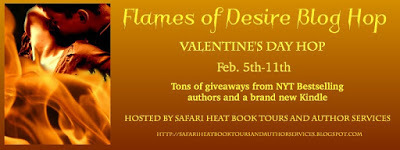
All the rules and how the hop will work it listed on the Safari Heat site.
Be sure to post a comment with your name and e-mail address for more chances to win the grand prize (a Kindle Fire HD 7″). If you follow me on Facebook or , mention it in the comment for more chances to win!
And don’t forget to sign up for my own Rafflecopter giveaway below (this is separate from the blog hop prizes).
Love is a Verb
From our earliest pre-teen days, chatting about boys and wondering over the mystery that is romance, we’ve tried to define love. We’ve asked our girlfriends (who didn’t know any better than we did), and our parents (who may also not have known). We watched movies and read books which presented us with spectacular dreams of “soulmates” and “true love” and “happily ever after.”
My personal favorite:
“And wuv, tru wuv, will fowow you foweva…” (The Princess Bride)
I won’t pretend like I know what love is better than the rest of you, but I’ve spent the past few years of my life writing a romantic series with one idea in mind: Love is a verb. I know – it’s not a definition, it’s a part of speech – but that’s the best I’ve got!
I’m an incurable romantic, really. I’ve read countless hundreds of romance novels – from historical to contemporary, normal to paranormal – and I love many of them. Yet when it came time to breathe life into my own romance novels, I couldn’t help but notice how so much of the romance world treats love as a noun. It’s a thing, a power that conquers all, a force, a feeling. When it’s true, it’s all you need and it lasts forever; if it fails, then it couldn’t have been love.
I’ve been married for fourteen years to a man who is also my best friend. He drives me crazy and drives me wild. He’s not perfect and neither am I. There are days when I can’t remember why I married him and days I can’t imagine how I’d live without him. And through all of that, love has never been a noun. Or at least, not just a noun.
Love is something you do. It’s an action – the act of loving – and it’s a little different for everyone because we’re all a little different. We want and need different things.
Love is a choice you make, every day. It’s thinking of someone else’s needs before your own, and considering their feelings as at least as important as yours. It’s making a big sacrifice because what he needs is more important than what you want. It’s about making little sacrifices just because, well, you may not like kale but he does so every once in a while you make it for dinner.
Chemistry is great. Aside from feeling good, it makes the choice to love someone a little bit easier. But at the end of the day if you want to sell me a fabulous tale of love, then it needs more than feelings. It needs actions.
To keep hopping follow the link below.
http://safariheatbooktoursandauthorservices.blogspot.com
January 18, 2018
Cassie Scot Cover Reveal
Coming April 25, 2018!
A big thank you and shout out to all the bloggers who took part in my cover reveal:
January 8, 2018
Travelers Season 2
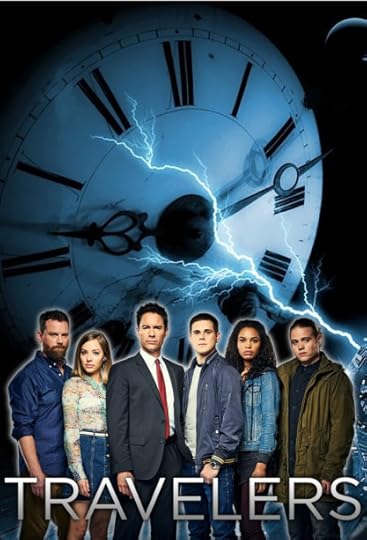
Netflix released season two of Travelers on December 18 and honestly, the only reason it took me so long to watch was Christmas. I’m not convinced the week before Christmas was the greatest release date, but I won’t pretend to be a marketing expert. 
November 8, 2017
Series Review: Haven
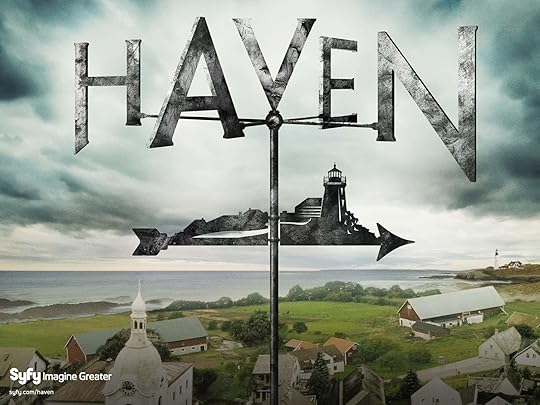
I have just finished watching all five seasons of Haven (2011-2015) on Netflix and I recommend it to those who enjoy a paranormal mystery — with a few caveats.
First and foremost: Season 1 was uninspiring. I don’t think I would have finished it except that my 11-year-old son was watching with me, and he was into it. The episodes were episodic, the “troubles” made little sense, and in some cases were truly absurd, and it was hard to believe that the writers had a serious plan for the show.
Then things got rolling!
Seasons 2, 3, and 4 were the true highlights of this series, IMO. Though the shows continued with their episodic nature clear up until the last season, when there was no longer any hope for it, the series arc became clearer, the stakes became higher, more interesting characters and relationships developed, and we began to see that the writers did, in fact, have a plan.
There were even some twists and turns I definitely did not see coming, and that’s high praise indeed, coming from me!
Season 5 brought the show to a complete and satisfying conclusion, although I did begin to feel the drag and thought things might have gone on just a tad longer than they needed to.
It was nice that this show was watchable with my 11-year-old son. There is some kissing and romance (he hid under the blankets during these moments) but it was reasonably tame and it was plot relevant.
All in all, this is good. It’s not going to be on my favorites list, but not everything can be. If you’re looking for something paranormal to watch and you have Netflix, check this out — all 5 seasons are available to watch.
Christine Amsden Author Blog
- Christine Amsden's profile
- 424 followers


